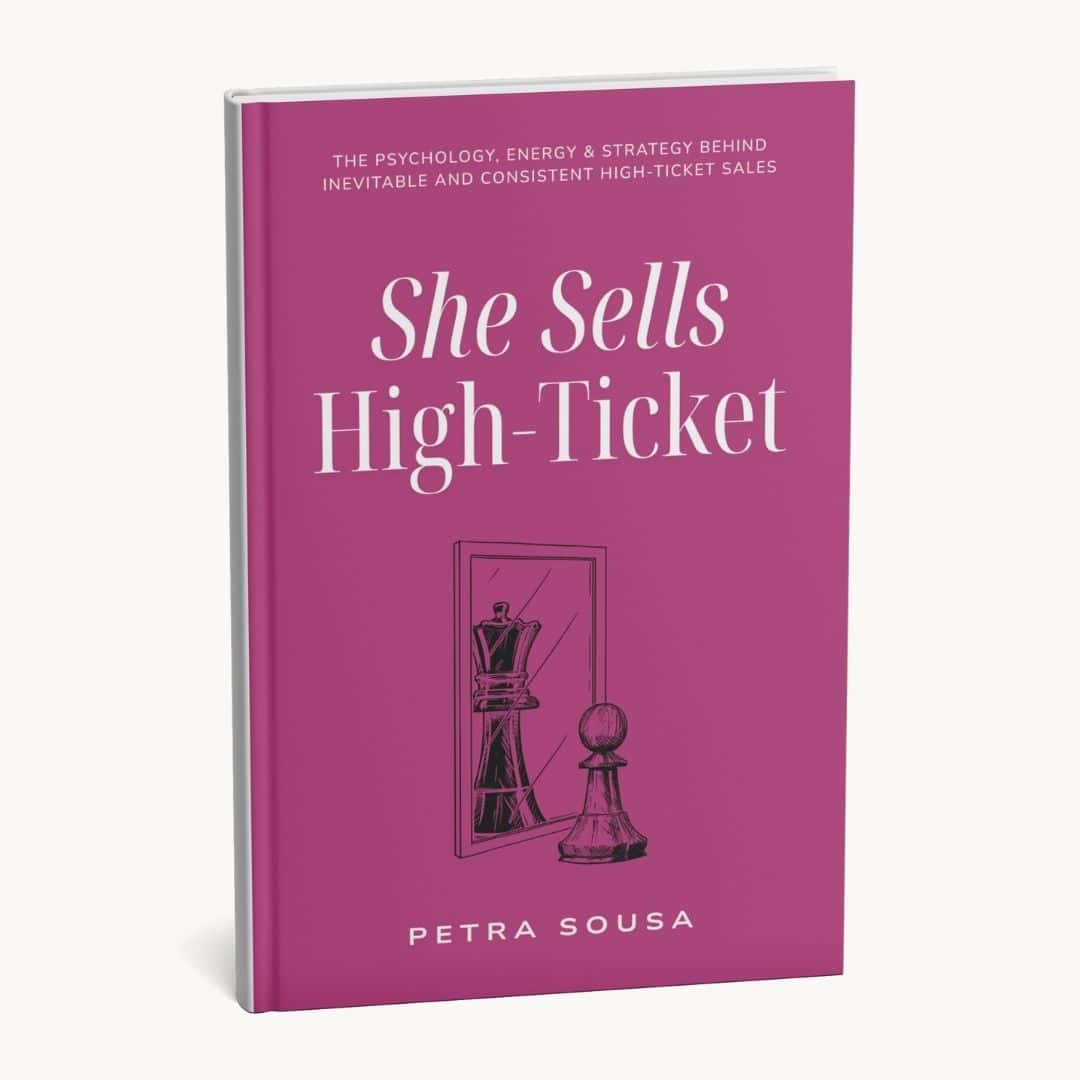How to Price Your Coaching Services
confidently and optimized for profits
Let me guess…
You’ve lost sleep over your pricing. You’ve scrolled endlessly, comparing your rates to what she’s charging, or what he seems to get away with. You probably even had that fleeting surge of “I’m worth it!” empowerment, decided to go all-in on a premium price, only to hit the panic button when your inbox remained silent for a few days. “Must be too high,” you reasoned. So, you swung the pendulum hard the other way: slashing rates, offering “special deals,” desperately hoping that “maybe now it’ll be easier to get clients.”
All for nothing.
The few clients who do trickle in (if any)? They hesitate. They haggle. They ghost you after the discovery call or ask for payments plans that just scream “I can’t afford it”. (And let’s not even whisper about the agony of chasing missed payments.)
You’re exhausted. Probably a little resentful. And definitely, secretly, wondering: “Why is this SO damn hard?! What do these consistently booked-out, high-earning coaches know that I don’t?”
I could write an entire book on this particular brand of coaching torment (and, well, I did), but here’s the one-liner:
Your struggle isn’t about the specific number on your sales page. It’s about the perceived value (or lack thereof) that number represents.
Why Undercharging is a Business Sabotage Strategy (And the Fix)
Most coaches, bless their hearts, approach pricing like a high school math problem: “Lower price = more buyers, right?”
Wrong. So very wrong. Here’s your reality check:
- Low prices attract skeptics, not serious clients. You end up with people who don’t truly believe in your value (and, often, don’t truly believe in themselves or their ability to get results).
- You become a magnet for “tire-kickers.” These are the clients who want the million-dollar transformation but aren’t willing to genuinely invest in themselves to achieve it. They’re looking for magic pills, not committed partnership.
- You burn out. You’re trading precious hours for pennies, all while dreaming of that elusive high-ticket freedom. It’s a fast track to resentment.
5 Signs You’re Chronically Undercharging:
- You find yourself constantly justifying your prices (“But it includes 12 weeks of direct support AND a unicorn!”).
- Clients frequently ask for discounts or convoluted, “can I pay you in installments of $17 over 300 years?” payment plans (and you, feeling desperate, often cave).
- You massively over-deliver to “prove it’s worth it” (and then silently seethe with resentment for every extra unpaid minute).
- Your pipeline of new, qualified clients dries up, because genuine high-ticket buyers are often wary of prices that subtly scream “I’m a bit desperate and unsure of my value.”
- The few clients you do sign tend to blame everyone and everything but themselves when they don’t achieve the results they vaguely hoped for.
The Uncomfortable Psychology of Premium Pricing
(And How to Make It Work For You)
What happens if Tesla suddenly starts selling their cars for $10,000? Or if Honda slaps a $100,000 price tag on a Civic? Neither company sells many cars. Why? The product delivery, the brand perception, and the target audience are galaxies apart. The price simply doesn’t match the perceived value for the intended buyer.
The high-ticket market, the one you want to be in, speaks compellingly to only about 10% of any given niche. Trying to sell your premium services to the other 90% is like trying to serve vintage champagne to a crowd that just wants tap water. It’s a waste of your good stuff and their time.
Ask yourself this, honestly:
“Is everything I’m currently doing, from my core messaging to my offers to my energy, actively raising my perceived value in the eyes of that top 10%?”
Examples of (unintentionally) killing your perceived value:
- Promoting an endless stream of freebies or “magic pill” low-ticket offers (most of which become digital dust collectors for your audience).
- Obsessing over a “perfectly polished” Instagram grid (instead of cultivating a recognizable, authentically human, and authoritative brand presence).
- Constantly pitching and pushing your offers (a clear low-ticket behavior that repels premium buyers).
Pro Tip: If someone like Marie Forleo (or insert your industry’s equivalent high-caliber leader) reviewed your current online presence and offers, would she see a peer, someone she’d confidently refer a high-level client to? If the answer is a hesitant “no,” it’s time for a strategic and energetic value glow-up.
The Mindset Shift That Unlocks Consistent High-Ticket Sales
Repeat this after me:
“Charging appropriately for my deep expertise isn’t “greedy”; it’s a powerful filter. It ensures my clients are as all-in on their transformation as I am on guiding them.”
Fun fact (that isn’t really fun until it happens to you): Every single undercharging client I’ve worked with is initially shocked, then thrilled, by how much easier selling becomes once they confidently embrace higher, value-aligned prices.
But, and this is a HUGE “but”, this pricing alchemy only works if you simultaneously upgrade:
- Your Energy: Cultivating an unshakeable, internal confidence that your offer, expertise, and the results you facilitate deserve this premium investment.
- Your Messaging: Articulating the outcomes you provide as profound, identity-level transformations, not just transactional service delivery.
- Your Strategy: Moving beyond “hoping for DMs” to implementing reliable, scalable systems for attracting and enrolling clients.
Simply slapping a higher price tag on your existing offer without upgrading your energy, your core messaging, or your client attraction strategy? You’ll struggle. Mightily.
Why?
High-ticket clients can smell uncertainty and incongruence from a mile away. They need to feel, deep in their bones:
- “This person unequivocally knows their worth and owns their expertise.”
- “They’ve clearly helped others like me achieve what I desire; I can trust them implicitly.”
A quick gut-check: if you tripled your current price right now, without changing a single thing about your offer or how you feel about it, would YOU confidently buy it from yourself? Be brutally honest. Remember this core principle: people never buy a product; they buy the perceived value of the transformation and certainty it promises. You don’t taste the bread before you buy it; you buy the promise of freshness and the story it tells.
(This, by the way, is why my clients consistently go from the terrified internal whisper of “I can’t possibly charge that!” to the elated declaration of “I just signed another $10K client, and they said YES with ease and excitement!” Spoiler: It’s not magic. It’s the combination of upgraded Mindset + aligned Method.)

Still Guessing How to Land High-Ticket Clients?
Your expertise deserves more than "maybe next month." This book,
